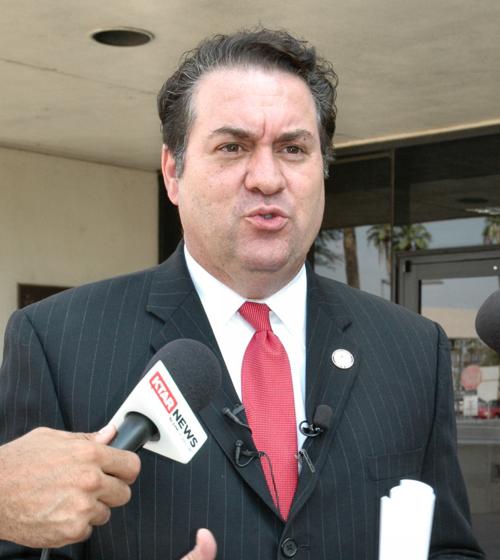PHOENIX — A state judge threw out much of the challenge by Attorney General Mark Brnovich to the power of state universities to lease out the land they own for private, for-profit operations.
In an extensive ruling Tuesday, Tax Court Judge Christopher Whitten said Arizona law gives the Board of Regents the authority to buy, hold and sell real estate. That power, the judge wrote, specifically includes the power to enter into leases of the land it owns.
And in this case, Whitten said, the deal to create a 330-room Omni hotel and a 30,000-square-foot conference center on land that is owned by Arizona State University clearly is a lease.
The judge also would not let Brnovich claim that, by seeking to void the deal, he is enforcing laws to ensure that all property is being properly taxed.
“The property on which the Attorney General seeks to collect tax is constitutionally exempt from taxation,” Whitten wrote, because it belongs to the universities and the regents. “There is no tax owing, and nothing for the Attorney General to enforce.”
Anyway, the judge said, Brnovich’s power under the tax enforcement statutes allow him only to “prosecute” tax laws.
“The power to ‘prosecute’ is different from the power to ‘initiate’ or ‘commence’ an action,” Whitten said.
But the judge left intact one part of the lawsuit, at least for the time being. Whitten said he will give Brnovich the chance to argue the deal violates the gift clause of the Arizona Constitution.
That, however, could depend on the judge deciding the question of what did Brnovich know about the plan for the hotel, when did he know it — and did he wait too long to sue.
But Larry Penley, who chairs the Board of Regents, said he believes that the judge ultimately will rule against Brnovich on that issue, too.
“There is no gift clause violation because of the significant benefits of this project to students, Arizona State University and the city of Tempe,” Penley said in prepared comments.
The ultimate outcome of the lawsuit has statewide implications. If Brnovich wins, it would undermine similar deals where universities lease out their tax-exempt property for commercial development.
In the lawsuit filed earlier this year Brnovich argued the practice of the board in removing property from the tax rolls and leasing it for private development is not only unfair to other taxpayers but also unconstitutional. He said the net result is that everyone else in the taxing district, whether city, county, school or community college, has to pay more to make up for what is avoided by the businesses that benefit.





